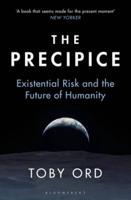Publisher's Synopsis
Using the combined tools of science, philosophy and the social sciences, the author sets out to explore the numerous facets of what we understand reality to mean. Close attention is given to the human side, especially to the individual experience of reality as manifested through personality, cognitive power, self-consciousness, and rationalistic and communicative endowments. This micro analysis is contrasted with a macro world view, encompassing our understanding of, and observation of, the outer edges of the universe, and how different levels (scientific and lay) of understanding impact on our relative perception of this particular reality. Three pivotal arguments sustain the micro/macro examination parameters outlined above. First, is the need to view reality in terms of uncertainty. We perennially encounter uncertainty since reality is riddled through with chance, even in the case of deliberate choice of action ostensibly based on rationality, yet unavoidably affected by chance. Second, the limits of knowledge and constant uncertainty means that mankind must always live with the unknown and the unpredictable. Third, it is the human being, whether scientist or layperson, who creates the knowledge and its application to the experience of life, which in turn contributes to the creation of new realities. These complex and infinite processes are difficult to fathom at the personal level, and fraught with challenges for scientists, philosophers and social scientists. But given the centrality of reality to our everyday experience and social intercourse -- for the individual has to face the world, interact with other people and survive -- its importance cannot be underestimated. Ernest Krausz provides the philosophy platform to analyse the complex social interactions of human beings as they wrestle with the reality of everyday life, yet observe the vastness and uncertainty of their galaxy and beyond.









